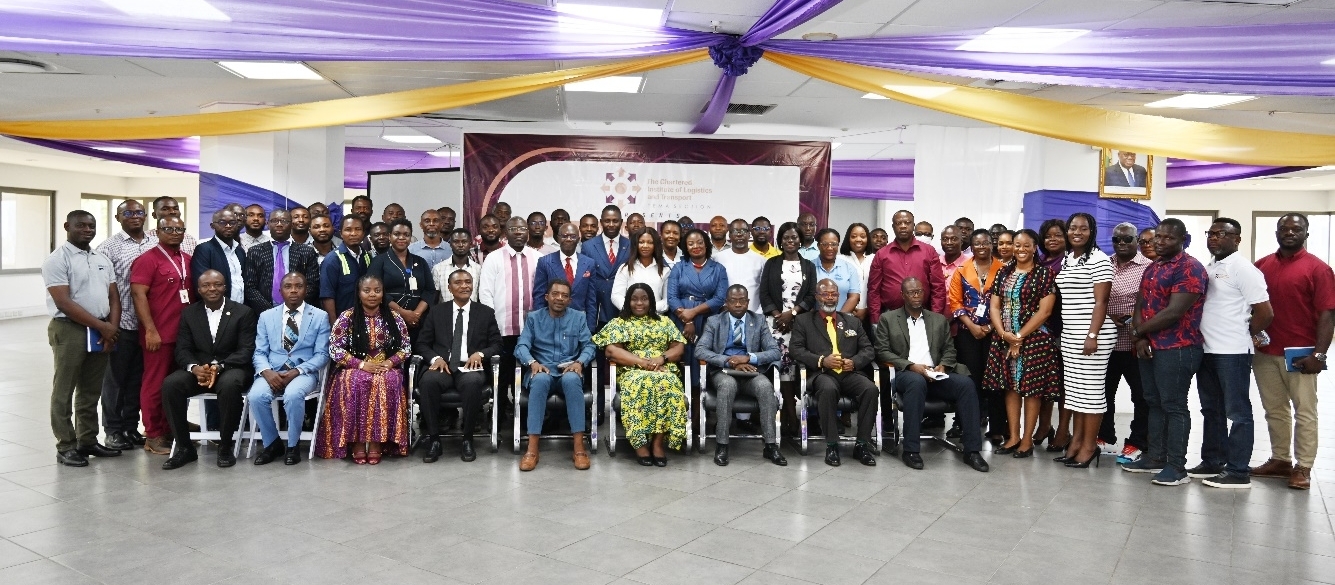
By Ann-Richel Atuabea TAGOE
In an era where businesses are under increasing scrutiny from stakeholders, the role of the private sector in community development is being redefined. It is no longer sufficient for companies to engage in Corporate Social Responsibility (CSR) as a peripheral activity.
Today, the expectation is for meaningful, sustained engagement that delivers long-term value to both businesses and the communities in which they operate.
As these expectations rise, so too must the ambition and authenticity of corporate action, particularly in the extractive industry, where the business activities of companies are closely intertwined with the livelihoods and ecosystems of host communities.

Traditional CSR is typically categorized as a discretionary expense aimed at enhancing public image, with limited influence on the long-term development of the communities it is meant to support.
In contrast, Corporate Social Investments (CSI) focuses on identifying and backing viable projects that align with both community needs and long-term business goals, fostering transformational change and sustainable value in host communities.
This is sustainability in action, embedded in strategy, measurable in impact, and transformative for both businesses and communities.
A compelling example of CSI in action is the Asutifi Processing and Services Centre (APSC), established by Newmont and located at Subrisu, serving nearby host communities such as Gyedu, Kenyasi No. 1, Kenyasi No. 2, Ntotroso, and Wamahinso.
Originally established in 2015 by Newmont Ghana to support agribusiness development through the processing of pepper and ginger into powdered flakes, the facility suspended operations in 2018 due to managerial, logistical, and supply chain challenges.
Recognizing its strategic potential, Newmont partnered with Injaro, a private equity and consulting firm that builds sustainable African businesses, to revive and reposition APSC as an agro-industrial hub.
The results have been remarkable and demonstrate sustainability across three key dimensions:
Economic Sustainability
The shift from one-time charitable donations to the CSI model is economically transformative. Rather than simply issuing grants, companies can now invest in ecosystems that build resilience and autonomy, with the expectation of measurable returns, whether financial, social, or both, ensuring long-term sustainability.
Mining companies in Ghana can diversify local economies by developing agribusinesses, renewable energy ventures, local manufacturing, and digital services, reducing dependence on volatile commodity markets and generating sustainable income streams. CSI provides a foundation for job creation, small business development, and broad-based economic diversification.
Traditional CSR might end with building a clinic or funding a school, but CSI goes further; it builds value chains, fosters entrepreneurship, strengthens supply networks, and ensures long-term productivity.
At APSC, over 1,300 smallholder farmers are supported through an out-grower scheme that guarantees offtake via contracts. This approach reduces income uncertainty and enables farmers to reinvest in efficiency and expansion.
The facility currently processes up to 200 metric tons of ginger flakes and 80 metric tons of chili powder monthly, linking producers to both domestic and international markets. Farming has evolved beyond subsistence; it is a viable and scalable business.
This exemplifies circular economics in practice, where local inputs drive sustainable value chains, ensuring both profitability and impact. APSC’s model enhances supply chain resilience and positions the facility as a source of product innovation.
CSI redefines Newmont’s role from donor to economic enabler, helping increase household incomes, support local entrepreneurship across sectors, and reduce community dependence on a single employer or industry.
Social Sustainability
On the social front, CSI promotes a shift from transactional outreach to strategic co-creation. In the past, some companies, particularly in the extractive sector, have encountered community tensions when CSR efforts did not fully align with local expectations or long-term needs.
CSI offers a more sustainable path by fostering genuine partnerships and building trust through shared value and sustained engagement.
Communities are no longer treated as passive recipients of aid but as active stakeholders in development. As part of the initial revamp activities, Newmont partnered with Injaro to conduct extensive stakeholder engagement with traditional authorities, local government officials, youth groups, and other community representatives under the CSI framework.
This inclusive process laid the foundation for APSC’s model, which embeds this ethos through comprehensive training programs for its management team, covering financial management, health and safety, record-keeping, and sustainable agriculture. Injaro also facilitates leadership transitions to local management, strengthening community governance and operational capacity.
A notable outcome is that communities seek to move beyond reliance on traditional CSR initiatives for survival. Instead, CSI enables parallel economies and empowers communities with transferable skills and decision-making authority.
This approach aligns closely with the ‘S’ in ESG (Environmental, Social, Governance), encompassing human rights, diversity, inclusion, and transparency, factors increasingly tracked by impact investors.
Social sustainability under CSI enables dignified, inclusive development where businesses act as catalysts, but communities chart their own path forward.
Environmental Sustainability
Under CSI, environmental efforts move beyond superficial green initiatives to long-term stewardship. Companies now invest in reforestation, community recycling programs, and climate-smart agriculture, often in partnership with local governments.
These projects enhance soil health, secure water sources, and mitigate climate risks, while also reducing operational vulnerabilities.
A cornerstone of APSC’s sustainability strategy is its investment in nucleus commercial-scale farms that complement the out-grower network and ensure consistent, year-round production.
While smallholder partnerships remain central to APSC’s inclusive model, the nucleus farms serve as a buffer against supply disruptions, whether caused by climate variability, pest outbreaks, or market shocks.
By integrating these farms into their operations, APSC strengthens its value chain from within. It reduces risk, enhances planning accuracy, and stabilizes factory throughput.
This model not only supports continuous processing but also enables the facility to pilot the best agricultural practices, such as climate-resilient cropping, improved irrigation methods, and yield optimization techniques, which are then shared with out-growers through structured training.
This level of foresight ensures that sustainability is not only about environmental stewardship or social inclusion but also about operational continuity and food system resilience.
It is a powerful demonstration of how CSI, when executed effectively, does not merely uplift communities; it also safeguards business performance.
This holistic approach demonstrates that environmental sustainability, when embedded in CSI, not only protects ecosystems but also enables community resilience and enterprise viability, reinforcing the interconnected future of people, planet, and profit.
Sustainability is no longer a niche concern. It is the metric by which businesses are now judged by regulators, customers, investors, and, most importantly, by the communities they serve.
This approach aligns with ESG (Environmental, Social, and Governance) principles, which are increasingly used by investors and regulators to assess corporate sustainability. In 2024, the APSC was recognized as the Best Corporate Social Investment Project of the Year, a validation of what’s possible when strategy and social purpose align.[1]
The question for today’s business leaders is simple: Are your community investments building real trust, or merely ticking boxes?
To lead in the 21st century, businesses must embed sustainability at the heart of their strategy-not just to do good, but to do well.
The writer is an Investment Analyst at Injaro Investment Advisors Ltd, a firm dedicated to building sustainable African businesses that generate both social and economic value. At Injaro, Ann-Richel plays a pivotal role within the Corporate Social Investment (CSI) Advisory practice, where she supports the design and implementation of innovative, high-impact CSI strategies for clients in the extractive and adjacent sectors.
Her work involves driving sustainability through integrated approaches that align business objectives with community needs, delivering value across economic, social, and environmental dimensions. The CSI team at Injaro brings together over 50 years of collective experience in research, advisory, investment structuring, and project management.
[1] Ghana Business Awards, “Best Corporate Social Investment Project,” 2024

The post Beyond CSR: Embedding sustainability in business strategy appeared first on The Business & Financial Times.
Read Full Story
















Facebook
Twitter
Pinterest
Instagram
Google+
YouTube
LinkedIn
RSS